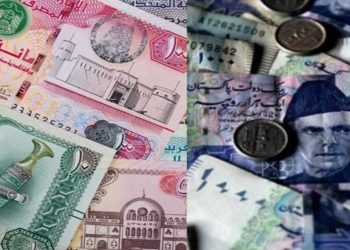The Pakistan nation is blessed with two icons in its founding, one is our political leader, the Father of the Nation Quaid-e-Azam Muhammad Ali Jinnah, and the other is our spiritual/ideological father Allama Muhammad Iqbal. Iqbal gave us the vision to strive for an independent Muslim state on the Indian subcontinent while Quaid-e-Azam led the political movement that converted Iqbal’s vision into a reality. Without either man, there would be no Pakistan to be a homeland for the Muslims of the Indian subcontinent.
Allama Iqbal played a major role in convincing Quaid-e-Azam Muhammad Ali Jinnah to lead the All India Muslim League and the Muslims of India to their beloved goal of an independent Muslim state. He chose the Quaid over other more experienced Muslim leaders such as Sir Aga Khan, Maulana Hasrat Mohani, Nawab Muhammad Ismail Khan, Maulana Shaukat Ali, and others. In the Quaid, the Allama finally found his “Khizr-e-Rah”, the veiled guide who was destined to lead the Indian Muslims to freedom. Allama Iqbal stated: “I know you are a busy man but I do hope you won’t mind my writing to you often, as you are the only Muslim in India today to whom the community has right to lookup for safe guidance through the storm which is coming to North-West India, and perhaps to the whole of India.”
There was no doubt in the mind of Allama Iqbal that Quaid-e-Azam was the man to lead the Muslims of India to the promised land as he observed, “There is only one way out. Muslims should strengthen Jinnah’s hands. They should join the Muslim League. Indian question, as is now being solved, can be countered by our united front against both the Hindus and the English. Without it, our demands are not going to be accepted. People say our demands smack of communalism. This is sheer propaganda. These demands relate to the defense of our national existence. The united front can be formed under the leadership of the Muslim League. And the Muslim League can succeed only on account of Jinnah. Now, none but Jinnah is capable of leading the Muslims.”
The importance of Allama Iqbal to the Quaid can be seen in his condolence message on the death of Iqbal on April 21, 1938: “To me, he was a friend, guide and philosopher and during the darkest moments through which the Muslim League had to go, he stood like a rock and never flinched one single moment and as a result just only three days ago he must have read of been informed of the complete unity that was achieved in Calcutta of the Muslim leaders of the Punjab and today I can say with pride that the Muslims of Punjab are wholehearted with the League and have come under the flag of the All-India Muslim League, which must have been a matter of greatest satisfaction to him. In the achievement of this unity, Sir Muhammad Iqbal played a most signal part.”
Quaid-e-Azam shared Allama’s vision of a separate Muslim state in the Indian subcontinent as he said, “His views were substantially in consonance with my own and had finally led me to the same conclusions as a result of careful examination and study of the constitutional problems facing India and found expression in due course in the united will of Muslim India as adumbrated in the Lahore Resolution of the All-India Muslim League popularly known as the “Pakistan Resolution” passed on 23rd March 1940.“
Allama was the inspiration behind the Lahore Resolution as Quaid-e-Azam remarked after its passage, “Iqbal is no more amongst us, but had he been alive he would have been happy to know that we did exactly what he wanted us to do.”
Besides inspiring the Muslims of India to create a separate state, Quaid recognized Allama’s contribution to Islam, “The message of Iqbal has reached the farthest corners of the world. He was the greatest interpreter of Islam in modern times.” (March 3, 1941, Lahore)
In an Iqbal Day message on December 8, 1944, Quaid-e-Azam acknowledged Allama Iqbal’s influence on Islam, “Iqbal was not merely a preacher and philosopher. He stood for courage and action, perseverance, and self-reliance, and above all faith in God and devotion to Islam. In his person were combined the idealism of the poet and the realism of the man who takes a practical view of things. Faith in God and unceasing and untiring action is the essence of his message. And in this, he emerges truly Islam. He had unflinching faith in Islamic principles and success in life meant to him the realization of one’s “self”, and to achieve this end the only means was to follow the teachings of Islam. His message to humanity is action and realization of one’s self.”
The Khizr-e-Rah or “Guide of the Era” Iqbal had foreseen in 1926, was found in the person of Quaid-e-Azam Muhammad Ali Jinnah. The “Guide” organized the Muslims of India under the banner of the Muslim League and offered resolute resistance to both the Indian National Congress and the British designs for a united India that would make Muslims a permanent minority.
Allama Iqbal’s philosophy and poetry served as an inspiration for the 1979 Iranian Revolution as stated by Ayatollah Ali Khamenei at the inauguration of the First Iqbal Summit in Tehran in 1986, “conviction that the Quran and Islam are to be made the basis of all revolutions and movements”, Iran was “exactly following the path that was shown to us by Iqbal”. Ali Shariati, who was the main ideologue for the Iranian Revolution, described Iqbal as a figure who brought a message of “rejuvenation”, “awakening” and “power” to the Muslim world.
Without Allama Iqbal’s vision, there would be no Pakistan and thus, I strongly appeal to Prime Minister Imran Khan to restore the November 9th Iqbal Day holiday. We need both our present and future generations to remember the importance of Iqbal to the ideological foundation of Pakistan and his wider contribution to Islamic thought. I remind our Prime Minister what John F. Kennedy fittingly said, “A nation reveals itself not only by the men it produces but also by the men it honors, the men it remembers.” Man is mortal but thoughts never die.




























